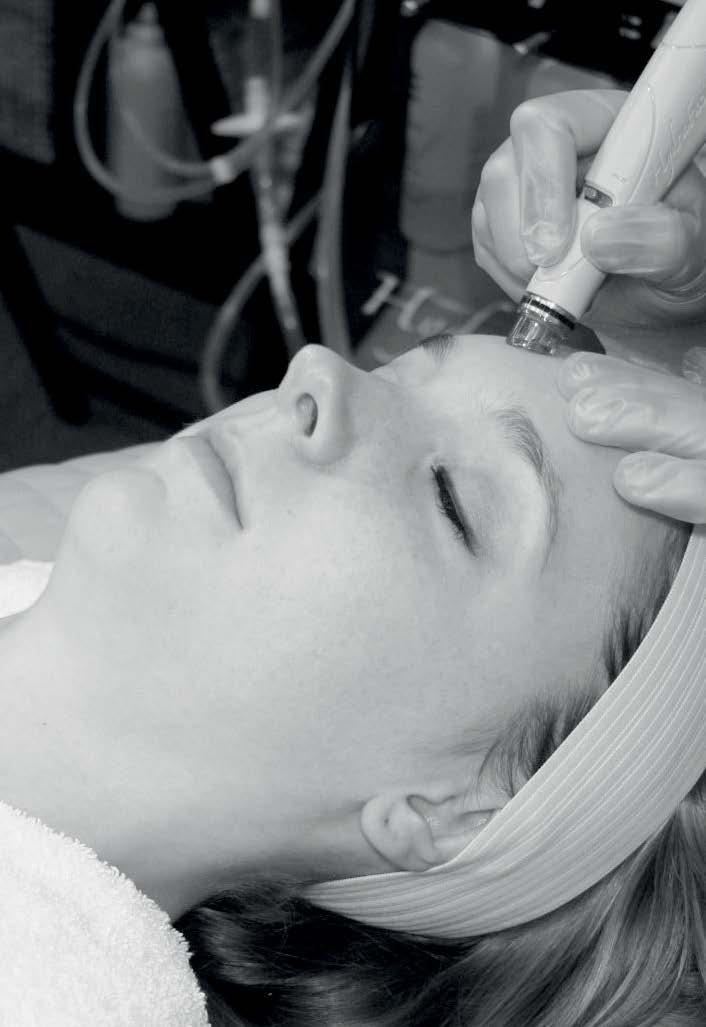Our Health
HOW THE SUN DAMAGES OUR SKIN
Lisa Evans Reid Clinical Director at Reflect
Although it feels great to be in the warm rays of the sun, too much exposure can result in long term damage. The sun's Ultraviolet Rays (UV) is a significant cause of skin ageing and skin cancer. Skin ageing often starts with dehydration, wrinkles, dark spots, and a thickening of the skin. In contrast, skin cancer is a change in the skin's cells.
• • • •
Basal Cell Carcinoma Squamous Cell carcinoma Merkle Cell Carcinoma Melanoma
It is essential to balance enjoying and benefiting from the sun's warmth while protecting our skin from the harmful effects of the UV rays. As we see an increase in skin cancers on exposed skin, which can be life changing!
The silent enemy Ultraviolet Rays (UV) In the UK, our love affair with the sun comes from its absence, resulting in us overexposing ourselves when it makes a rare appearance. In hot countries, the indigenous population's skin has had generations to prepare its natural protections. This natural protection comes in the form of melanin which is what gives us all the colour in our skin and the darker the skin, the more protection you have. However, just because you have a higher melanin content does not mean that you can throw caution to one side! We all must protect ourselves.
Who gets skin cancer?
Why is skin cancer dangerous?
Actinic/Solar Keratosis (AK) is the most common pre-cancer that forms on skin damaged by chronic, long term exposure to ultraviolet (UV) rays from the sun and / or indoor tanning. Although not all AKs will become cancerous if you already have one you are likely to develop more in the future and this puts you at higher risk of skin cancer. Early detection gives the dermatologist the opportunity to treat the AK and prevent skin cancer before it starts.
Anyone can get skin cancer, and it is slightly more prevalent in men as they do not tend to use sunscreens as much as women. Also, it is more common in older people, who have had long term UV exposure, but the young are still at risk and educating older teenagers about the risks and protecting younger children from burning is especially important.
Warning signs
The simple answer is that it can spread rapidly to other organs if not identified and treated by a dermatologist!
How many skin cancers are there? Cancer researchers have discovered over twelve different types of skin cancer; most are very rare. But the main four are: 32










